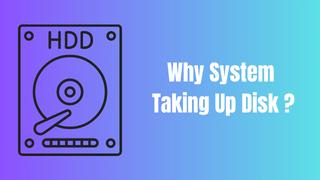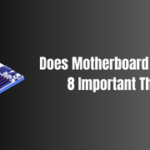Disk usage is something that concerns everyone, from the casual computer user to the seasoned tech professional. If you’ve ever found yourself staring at the Windows Task Manager, wondering why your disk usage is at 100%, you’re not alone. Let’s unravel the mystery of system taking up disk and learn how to handle the situation with some straightforward solutions.
Table of Contents
Why Does System Use So Much Disk? Understanding the Background
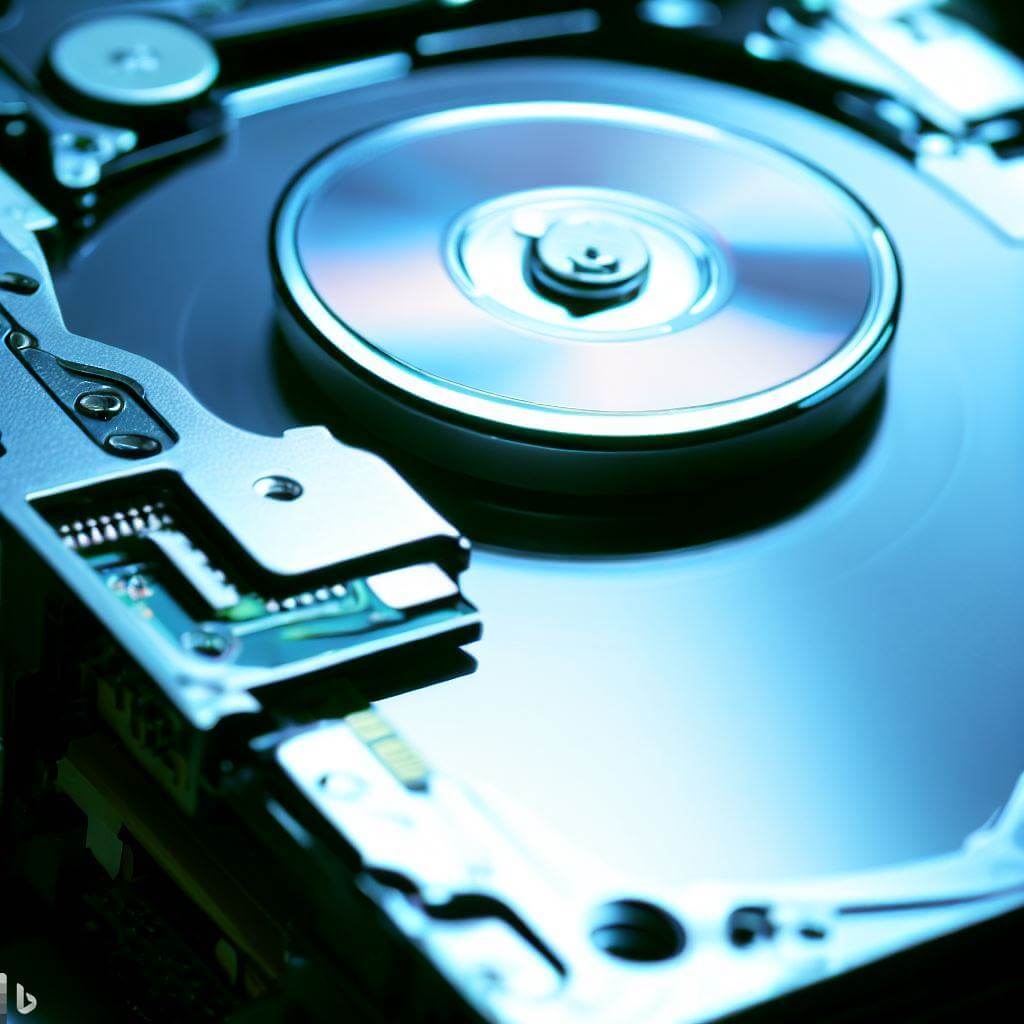
It might come as a surprise that your system uses so much disk space. In your day-to-day activities, several things can cause your system taking up disk to hit that 100% mark.
1. Windows 10 Update
With every new Windows 10 Update, new features are added or bugs are fixed, but sometimes these updates can consume a significant amount of disk space. They may run in the background, triggering your system high disk usage.
2. Background Applications: OneDrive, Dropbox, and More
OneDrive, Dropbox, and other applications that run in the background can contribute to your system using too much disk. They synchronize files between your computer and the cloud, consuming valuable disk resources.
3. Hard Disk Issues
Issues with your HDD or SSD might cause disk 100 problems. Whether it’s disk fragmentation, outdated hard drive firmware, or physical damage, hard disk issues should never be ignored.
How to Fix High Disk Usage? Solutions for Every User
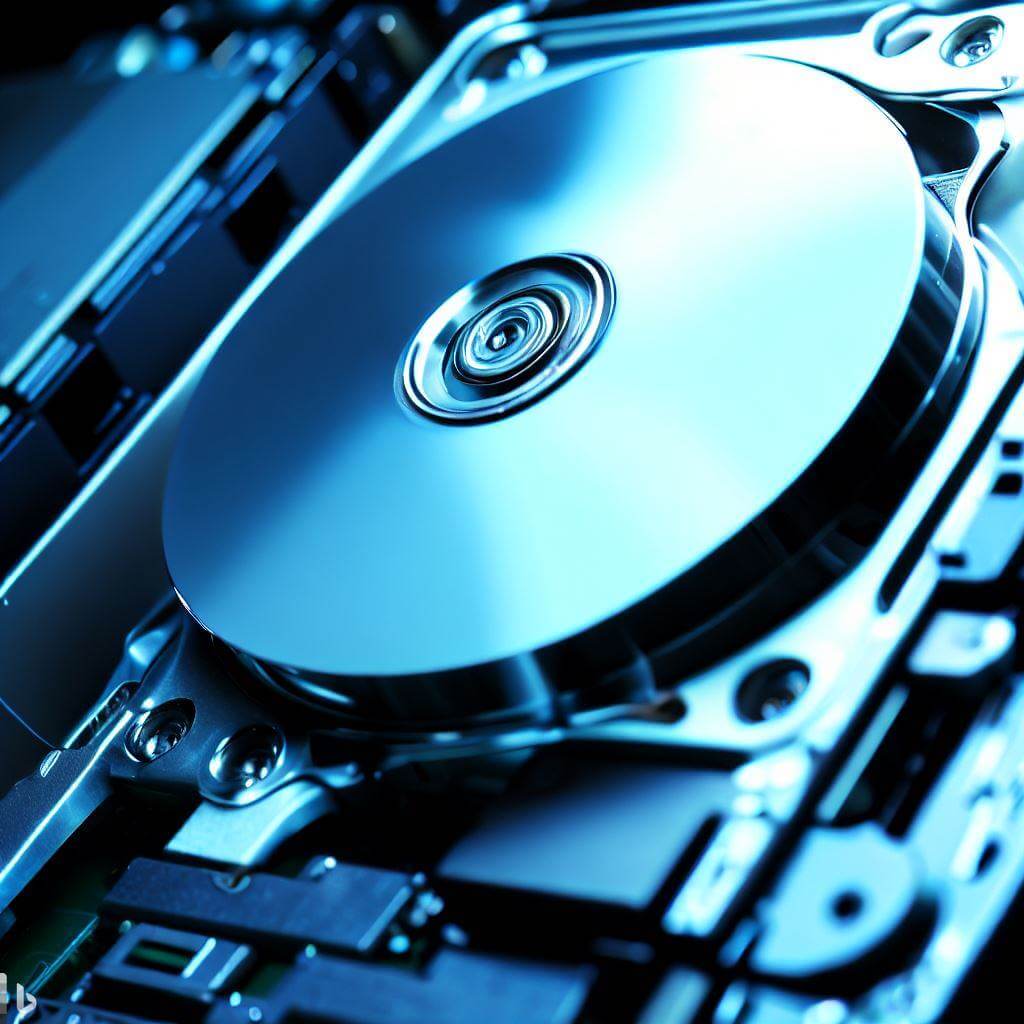
You’ve recognized the issue; now it’s time to address it. Here’s how we deal with windows system 100% disk usage and the common system taking up disk mac problem.
1. Service Host: Managing Superfetch and Storage Service
Known as Service Host: SysMain and Service Host: Storage Service, these processes manage various system functions. If they’re running wild, they might be your disk 100 problem culprits. Disabling them through Windows Task Manager might give immediate relief.
2. Keeping Your Drivers and Antivirus Software Up to Date
Updating drivers and antivirus software can solve many system using too much disk problems. Regular updates can help your system run more smoothly, reducing unnecessary disk usage.
3. Cleaning Temporary Files and Windows Search Index
Temporary files and the Windows Search Index can quickly take up disk space. Regularly clearing these files can prevent your system from hogging disk space.
| Cause | Solution |
|---|---|
| Windows 10 Update | Delay or manage updates |
| Background Applications | Manage or disable applications like OneDrive, Dropbox |
| Disk Fragmentation | Regular defragmentation for HDD |
| Outdated Drivers | Update drivers regularly |
| Page Files | Adjust or manage page files settings |
Dealing with Page Files, Temporary Files, and More
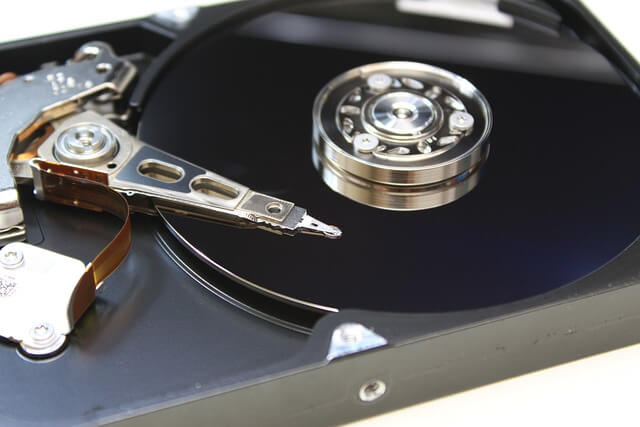
Sometimes, the issues lie deeper within the system. Page files that manage memory, for instance, may need adjustment. Managing page files and clearing temporary files regularly will ensure smooth operation.
Understanding Disk Types: SSD vs HDD
You’ve probably heard about SSD and HDD, but do you know what difference they make in system taking up disk? Let’s delve into this subject!
1. SSD (Solid State Drive)
SSDs are fast and efficient but can sometimes still contribute to system high disk usage. Regularly updating the firmware and managing your system properly can make sure SSDs run smoothly.
2. HDD (Hard Disk Drive)
With HDDs, disk fragmentation might be an issue, leading to the system using too much disk. Regular defragmentation and proper maintenance can ensure a smooth operation.
Defragmentation: The Secret Weapon Against Disk 100 Problem
Disk fragmentation is more common with HDDs, where files are scattered across the disk, causing the system to work harder to access them. Defragmenting your drive brings those fragments together, speeding up access times and reducing system taking up disk.
How to Do It?
- Open Disk Defragmenter in Windows.
- Select the drive you want to defragment.
- Click on the ‘Defragment’ or ‘Optimize’ button.
Note: SSDs usually don’t need defragmentation as they work differently from HDDs.
Why is System Using So Much Disk? Digging into Background Processes
Sometimes, the issue is deeper, hidden in the very functions that help your system run. Let’s understand what these are:
1. Superfetch
Previously known as Service Host: SysMain, Superfetch can sometimes lead to high disk usage. It preloads commonly used applications but might cause system taking up disk. Disabling it can be a solution.
2. Windows Search Index
This feature allows quick search results but might overload your disk. Temporarily disabling it and seeing if the problem resolves is a practical approach.
3. Background Applications
As mentioned, OneDrive, Dropbox, and other similar applications might consume disk space. Managing them effectively is key to smooth system performance.
Conclusion And FAQ About System Taking Up Disk
The battle with system taking up disk is a common one, but it’s not insurmountable. With the insights and tools provided in this comprehensive guide, you’re well on your way to conquering the disk 100 problem.
Whether you’re a Windows user grappling with Windows Task Manager or a Mac user dealing with system taking up disk mac, these solutions are universally applicable. Regular maintenance, awareness of what’s happening behind the scenes, and a proactive approach to updates and defragmentation will ensure that your computer runs like a well-oiled machine.
The relationship between you and your computer should be one of harmony and understanding. With these tools at your disposal, that relationship just got a whole lot stronger. Read more on fulltechguides;
Why is my system taking so much disk?
This can be due to various reasons, such as background applications, Windows updates, or temporary files taking up space. Identifying the specific cause and following the guidelines provided can help you resolve the issue.
Why is the system using 100%?
Your system hitting 100% disk usage can be alarming, but it’s often temporary and fixable. It might be related to disk fragmentation, Superfetch, or Windows Search Index. Applying the solutions in this guide can help bring it down.
Is 100% disk usage bad?
Yes, 100% disk usage can slow down your computer and strain your hard drive. It’s an indication that something is overworking your disk, and addressing the issue promptly is vital for maintaining optimal performance.
Is 10% disk usage normal?
Absolutely! 10% disk usage is generally considered normal and indicates that your system is operating efficiently. It means your computer has plenty of resources available for other tasks.
Will SSD solve 100 disk usage?
An SSD can provide better performance than an HDD, but it’s not a guaranteed fix for 100% disk usage. The problem might lie elsewhere in the system, such as with drivers, Windows 10 updates, or background applications. An SSD will make data retrieval faster, but the underlying issue must still be addressed.
